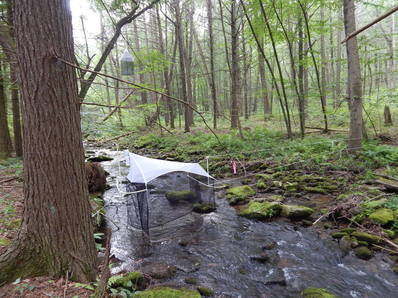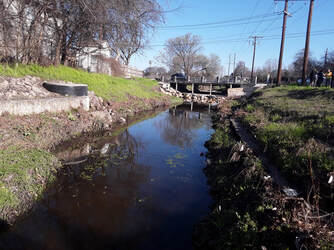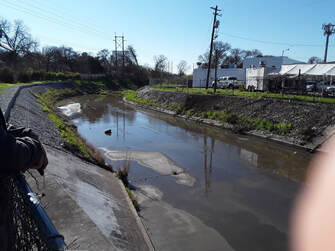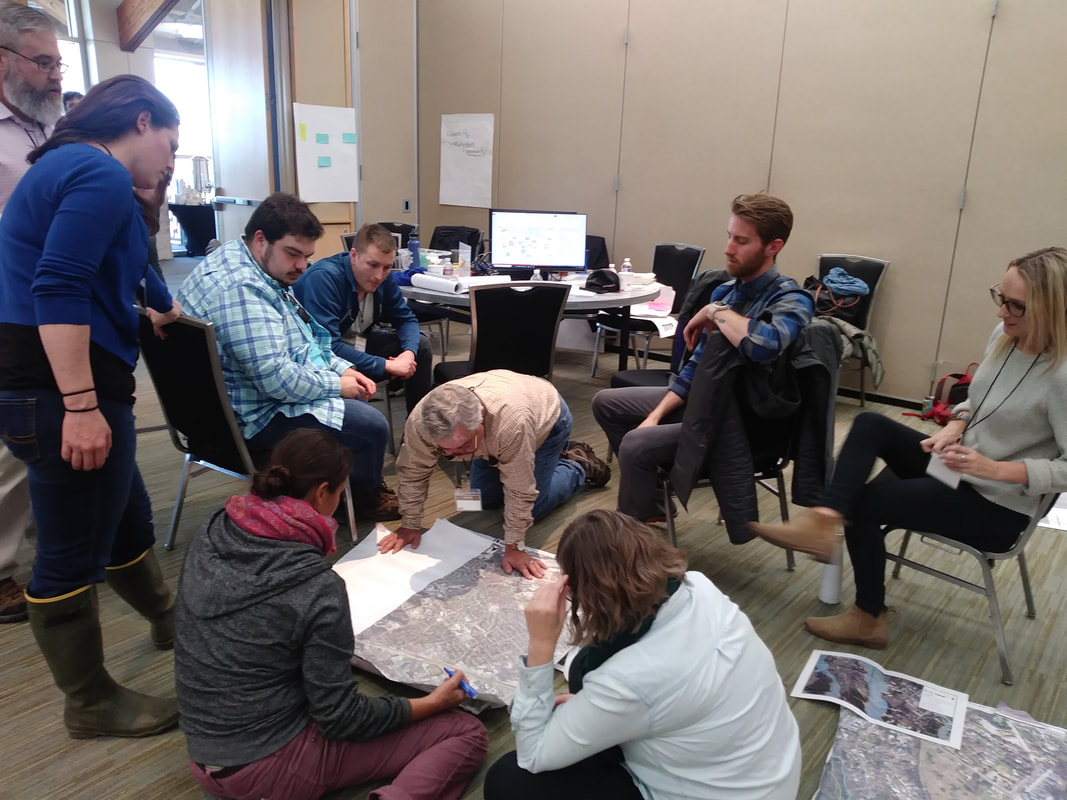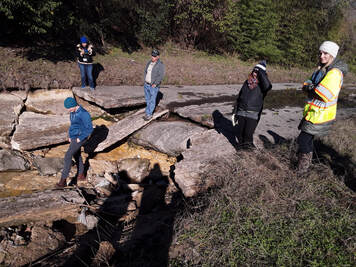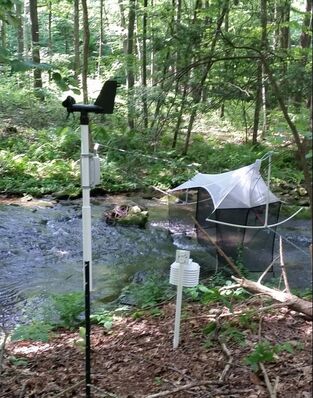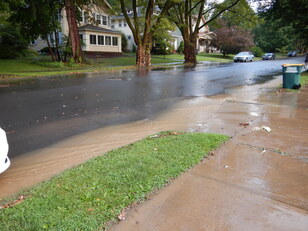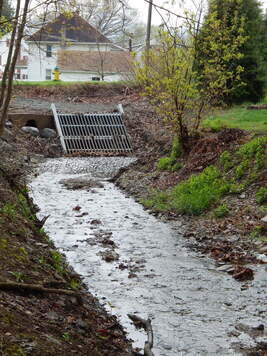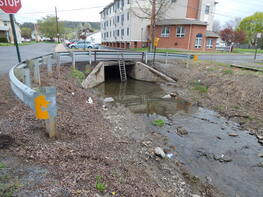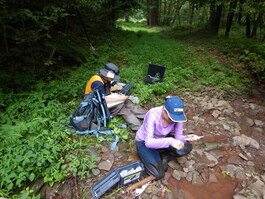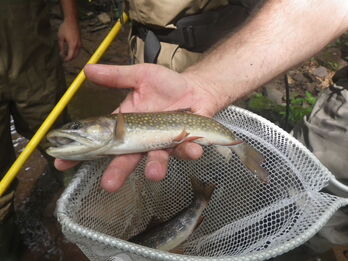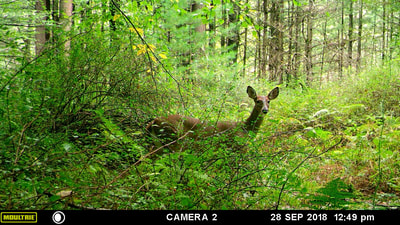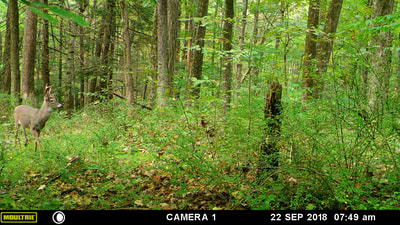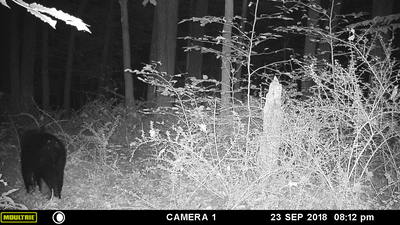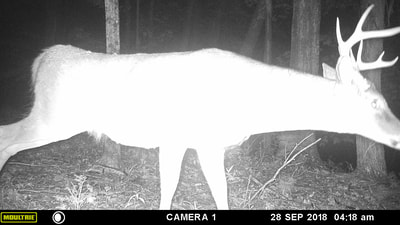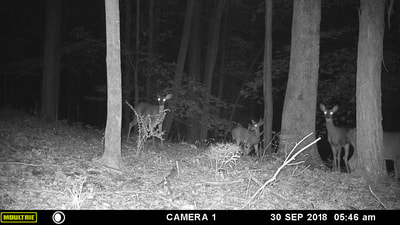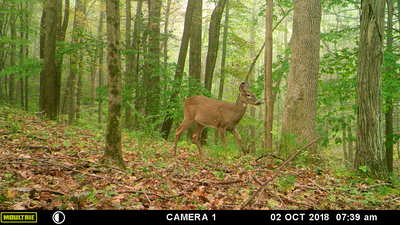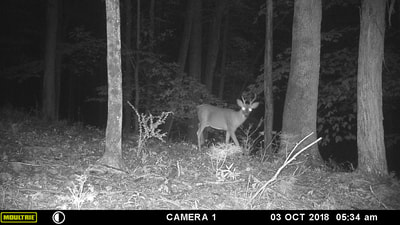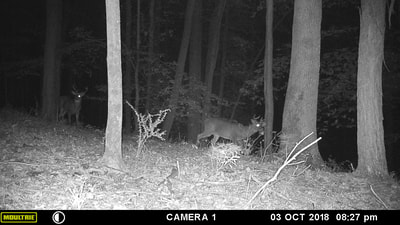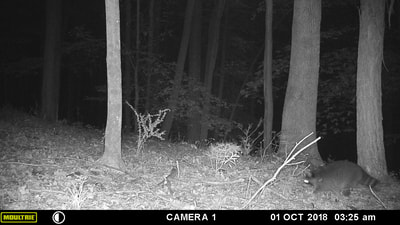I am an ecologist with expertise in aquatic entomology, organismal biology, and spatial ecology that allows me to work across spatial scales and levels of biological organization. I also combine my knowledge of ecosystem science, biology, and social science to study links between built environments, biodiversity, ecosystem goods and services, and human wellbeing. I am currently performing research at a primarily undergraduate liberal arts college with several talented undergraduate researchers and a postdoc. Below are descriptions of a few of the most active current research projects in my lab. Descriptions of previous work can be found on my page describing past projects.
|
Vertical movement by adult stream insects into the riparian canopy
This project examines the movement of adult (flight-capable) stream insects into the forest canopy. We will determine 1) the extent that adults move into the canopy and 2) if the species that move into the canopy have a wing morphology that is suited for gliding. We hypothesize that species with a behavioral trait to move into the forest canopy also are likely to have evolved high aspect ratio wings suited for gliding when they move above the trees. Ruric Bowman ('20, Lycoming College) is currently working as a research assistant on this project. This project is funded, in part, by the Washington Biologist's Field Club. An undergraduate co-authored manuscript describing the results of our research is currently in development. |
|
The socio-ecological context of urban streams
In May 2017, I was the chair of SUSE4. This past February (2020), I helped organize and worked as a moderator for SUSE5. SUSE is an interdisciplinary meeting held approximately every 3-5 years with the specific aim to further the scientific study of stream ecosystems in urban landscapes (SUSE website). For both meetings, I've worked to develop collaborations to examine the socio-cultural and institutional barriers to watershed scale restoration in urban systems. I am currently helping to write 2 synthesis papers (among others) examining how to achieve ecological and social beneficial outcomes of urban stream restoration and management. The following are citations for two manuscripts in prep to be submitted to a special issue on urbanization and stream ecology.
|
|
Communicating interdisciplinary science to produce actionable and equitable outcomes
SUSE5 was supported, in part, by a grant I received (in collaboration with all the organizers) by the National Science Foundation. The two themes of the grant were to a) increase diversity of participation at SUSE5 and b) validate a novel approach to a scientific meeting centered on a case-study approach. The goal of SUSE5 was to generate knowledge sharing among participants by working on real-world (complex) environmental problems in the host city (Austin, TX) with local residents. While we learned a lot about what worked and did not work, this approach to sharing knowledge across natural and social science disciplines that integrated knowledge and values of the local community had clear potential benefits for achieving ecological improvements and equitable social outcomes for local communities. The following paper is currently in production to summarize our experiences at SUSE5: Smith, R.F., M. Fork, F. Acuña, R. Hawley, K. Katusin, M. Neale, R. Scarlett. 2020. A novel approach for creating transformative co-produced science through a professional meeting: the 5th Symposium on Urbanization and Stream Ecology. Intended submission to: Frontiers in Ecology and the Environment (pre-submission enquiry approved). |
|
Effect of weather and climate on adult aquatic insect activity and phenology
This project examines flight activity by adult stream insects at ground level and in forest canopies in relation to daily patterns of weather. We will determine if adult insects activity increases or decreases (i.e., are caught in high or low abundances) during days with certain weather conditions. We hypothesize that insects will be most active when temperatures are warm, conditions are dry, and wind speed is low. We also hypothesize that weather conditions during dawn and dusk have the greatest effect on adult activity. The ultimate goal of this work is to determine how climate change may alter adult insect activity. Initial results, however, suggest that an important application of this work will be for understanding spatial patterns of adult activity and dispersal. Jenna Tasker ('22, Lycoming College) is currently working as a Gaul Research Scholar on this project. |
|
Developing a college-community stormwater partnership
Supported by a recent grant from the Aurthur Vining Davis Foundation, I am collaborating with CWI researchers (including postdoc Dr. Leslie Rieck) to develop a program that combines research, teaching, and extension related to urban stormwater. The CWI will serve as a resource to local municipalities needing to satisfy federal regulations for managing urban stormwater. Through this work, Lycoming College students will learn first hand the complicated social and political components of environmental management while also conducting research on developing outreach programs for urban streams. The overall goal of the project is to develop a framework for academic institutions to expand the capacity of resource-limited, small urban communities to manage stormwater. This work involves current research by Bailey Schwenk ('21, Lycoming College) creating a GIS-based prioritization system for MS4 compliance projects and has produced the following manuscript that is currently in review: Rieck, L., C. Carson, B. Hawley, M. Paul, M. Scoggins, M. Heller, M. Zimmerman, and R.F. Smith. 2020. MS4 misunderstandings: Moving toward effective stormwater management for small municipalities. Submitted to: Urban Ecosystems (Invited submission to special issue on urban stream ecology). |
|
Biotic and abiotic response of stream ecosystems to catchment urbanization
This research includes several projects related to the college-community partnership project above and that are a continuation from work prior to that grant. Overall, the research examines how biotic and abiotic characteristics of streams vary along gradients of urbanization and stormwater inputs. Current projects include:
|
|
Geographic assessment of landscape vulnerability to climate change
I collaborated with Mikayla Schappert ('20, Lycoming College) to pilot a GIS-based study to examine vulnerability to climate change among different geographic land forms (e.g., islands, rivers, mountain ranges, physiographic provinces, etc.). The project is currently working to define land forms based on geometry, land use/cover, climate, and other factors as a means to determine potential vulnerability of species inhabiting these regions to climate change. |
|
Unassessed Waters Initiative
Working in collaboration with the PA Fish and Boat Commission (and funded by NFWF), we survey streams in North-central PA for wild trout populations. This is a long-term project performed in collaboration with Dr. Mel Zimmerman and the Lycoming College Clean Water Institute. The results of this work help the PFBC to characterize streams as wild-trout streams. |
|
White-tailed deer survey
This project, while not necessarily something I've done a lot of in the past during my professional career, is being piloted with 2 primary goals in mind. I want to provide students who have an interest in wildlife ecology an opportunity to get some basic skills lab- and field-based skills examining wildlife populations. I also want to help a valued cooperator make empirically driven decisions about how to manage the deer population on their land. I am working to establish 10 permanent trail camera locations for long-term surveys in addition to scat counts and browse surveys to help estimate deer density. We plan on using a mark-recapture approach using fawns and antlered individuals. |
